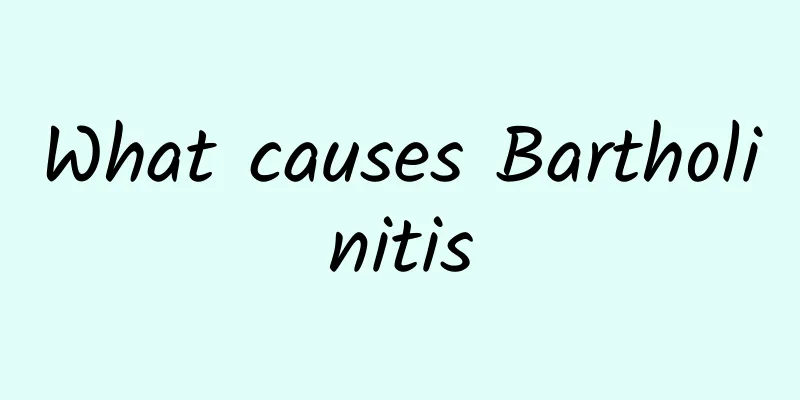Break the lutein chaos! Nutritionist: One plate of spinach and one egg yolk a day is enough

|
A while ago, there was a "lutein chaos" on the Internet, and the news of "the most expensive lutein was taken off the shelves" made a lot of noise. If people want to protect their eyes and retina and avoid macular degeneration, do they have to eat health foods? If we take lutein from vegetables, some people say that spinach, known as the "king of vegetables", has a high lutein content and we can eat more of it. Is this true? Let a nutritionist reveal it. Lutein, a good helper to protect the macula, helps the retina put on a "protective shield" Why can lutein protect the eyes? Let’s first get to know the ubiquitous blue light with the strongest wavelength, which is the invisible killer that damages the retina! The macula is the most sensitive photosensitive area in the retina. It can develop age-related macular degeneration due to aging and oxidative damage from strong blue light. In particular, when the blue light in the sun and the strong light from the mobile phone screen enter the fundus through the pupil, the light will bring chronic irritation, which will cause edema and inflammation of the macula in the long term, forming macular degeneration and even the risk of blindness. Lutein is a good helper in protecting the macula, because lutein is the most important nutrient in the macula of the eye. It can help the retina wear a "protective shield" and help resist the damage to the eyes caused by harmful light such as blue light. Taking 6-10 mg of lutein a day is enough for a stable consumption for 6 months Nutritionist Gao Minmin said that lutein is actually a member of the carotenoid family. There is a small amount of lutein in yellow and orange fruits and vegetables, and a large amount of lutein appears in green vegetables, such as broccoli, spinach, kale, etc. However, it is best to eat it with oil, or grind and heat it to increase the body's absorption rate. Lutein is a good helper in protecting the macula, because lutein is the most important nutrient in the macula of the eye and can help the retina wear a "protective shield". Lutein can be supplemented from natural foods, such as a plate of dark green vegetables and an egg yolk a day, which is enough. It is generally recommended that people take 6 to 10 mg of lutein a day. Foreign studies have found that no matter how high or low the dosage is, as long as it is taken steadily for about 6 months, the lutein concentration in the macula will reach a stable level. Even if you stop taking it afterwards, it will only gradually decrease and can last for about another half a year. Therefore, you should take lutein supplements for at least half a year, and it is okay to stop for half a year afterwards. People with high myopia, macular degeneration or a family history, or those who have nutritional imbalances from external foods and those who use their eyes for long periods of time can take additional lutein supplements, but the maximum daily intake should not exceed 30 mg. Supplement lutein through food: one plate of dark green vegetables and one egg yolk per day In fact, lutein can be supplemented from natural foods, such as a plate of dark green vegetables and an egg yolk a day, which is enough. Considering that 100g of raw and cooked spinach contains 6.6 to 12.64mg of lutein, eating a plate of spinach a day is actually enough. And eating it every day is more important than taking a high amount once in a while! How is it recommended to eat spinach so as not to destroy the nutrients? The part of spinach that is most likely to retain pesticides is the root and 1 cm near the root. This is also the part of spinach with the highest nutrition. It is recommended to soak it in clean water for a while, then rinse it carefully, and also rinse the roots and leaf veins until they are clean. If you want to keep the red head and root for consumption, you can scrape it clean with a knife and then rinse it. If you do not want to eat the red head and root, you can cut off 1 cm and then soak it. However, this will cause some nutrients to be lost. Nutritionist Gao Minmin said that although dark-colored vegetables contain a lot of lutein and zeaxanthin, under natural conditions, these pigments are connected to fatty acids, which is also known as esterified type. If they are not consumed with sufficient amount of oil, the lutein or zeaxanthin cannot be released properly, which will affect absorption. Therefore, remember to eat these vegetables with fat-containing foods, such as eggs, cooking oil, etc., so as to truly help the absorption of lutein and zeaxanthin. |
Recommend
Does pelvic effusion affect pregnancy?
Does female pelvic effusion affect pregnancy? Thi...
No Executive Yuan version, DPP legislators refuse to review the esophageal law
The "Food Sanitation Management Act Amendmen...
Vaginal candidiasis is the most common symptom of vaginitis in women
Common female vaginitis symptoms can be divided i...
Explain in detail the reasons and methods of checking abortion
Nowadays, people don’t know much about the reason...
What is the pathological knowledge of menopause?
Menopause is usually the permanent cessation of p...
When is the best time for painless abortion?
Nowadays, many people have unexpected pregnancies...
What can I drink to inhibit the growth of uterine fibroids? What can I drink to eliminate uterine fibroids?
What can I drink to inhibit the growth of uterine...
168 Fasting for weight loss? Don’t ignore these two blind spots! 777 chewing really helps you lose weight? Famous weight loss doctor: chewing increases satiety
The 69-year-old Hong Kong star Sammo Hung is know...
Remember these 4 tips to lose weight: You can lose weight easily at home
The most important point for a stay-at-home girl ...
Experts introduce the early symptoms of cervical erosion
I believe many people have this question. Many of...
What is the normal thickness of the endometrium during ovulation?
During ovulation, the thickness of the endometriu...
Little S stretches to lose weight and relieve back pain! Myth: The longer the tendons are stretched, the better?
Anyone who has the habit of exercising knows the ...
Is Bulletproof Coffee a Magic Tool for Weight Loss? Nutritionist: If you want to lose weight quickly with a ketogenic diet, be careful of these hidden landmines
The "Bulletproof Coffee" craze, which i...
How to eat while exercising to gain muscle and lose fat? 5 must-know tools! Nutritionist: Probiotics, B vitamins, and caffeine are also effective
The exercise trend is prevalent, and many fitness...
Is uterine cyst serious? How to treat it?
The severity of uterine cysts depends on the spec...









